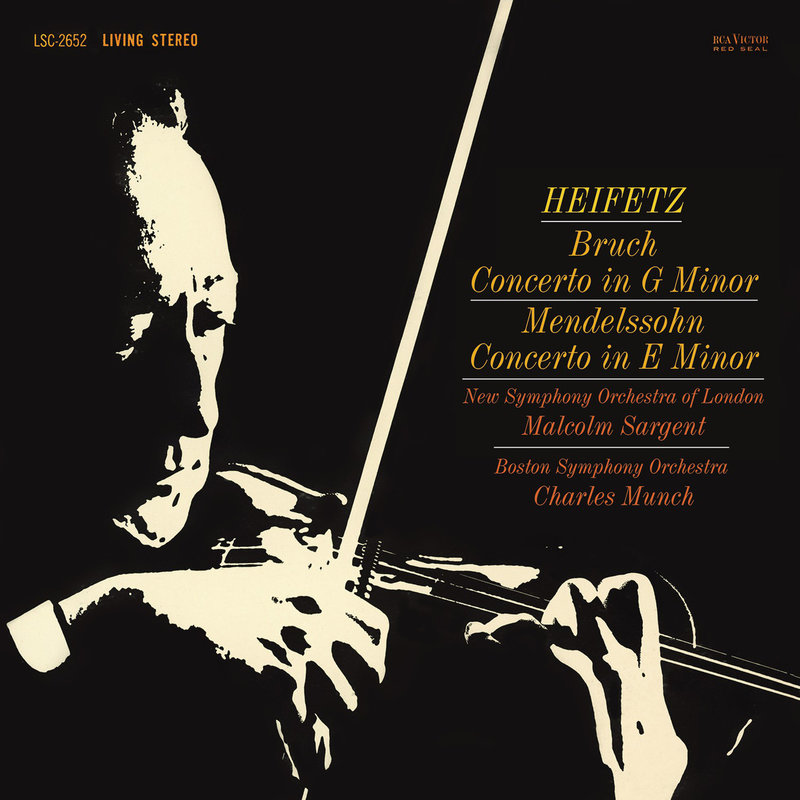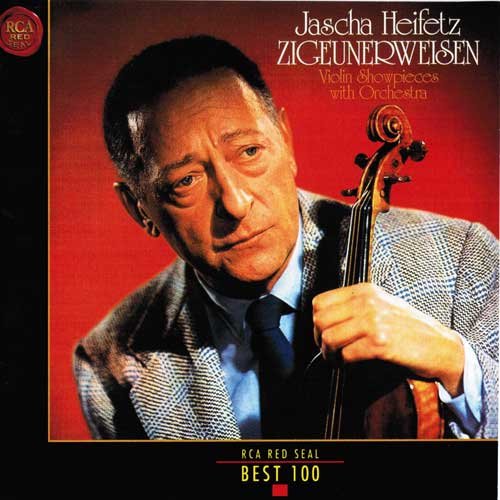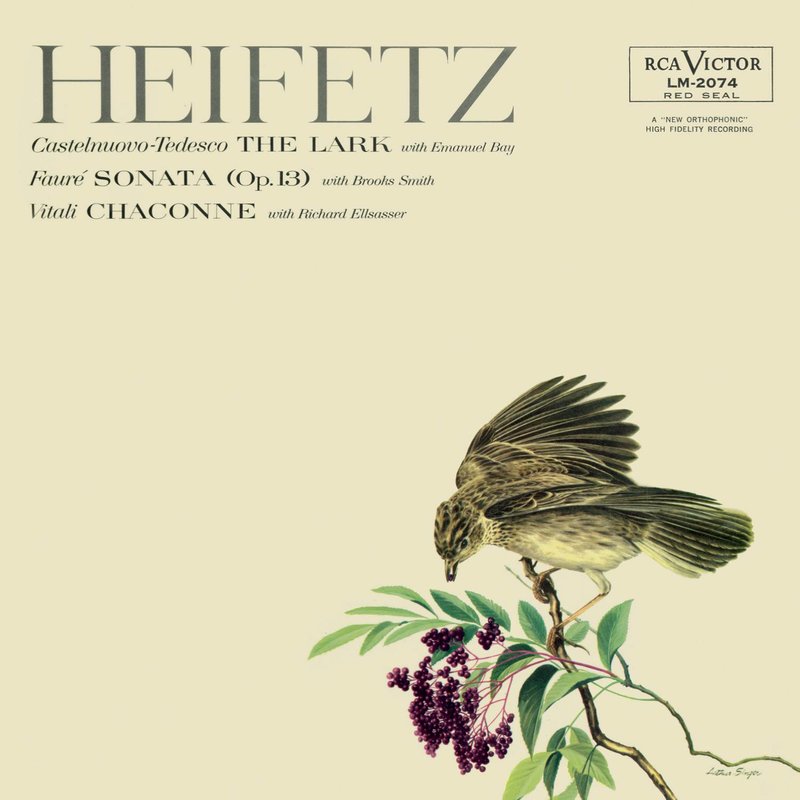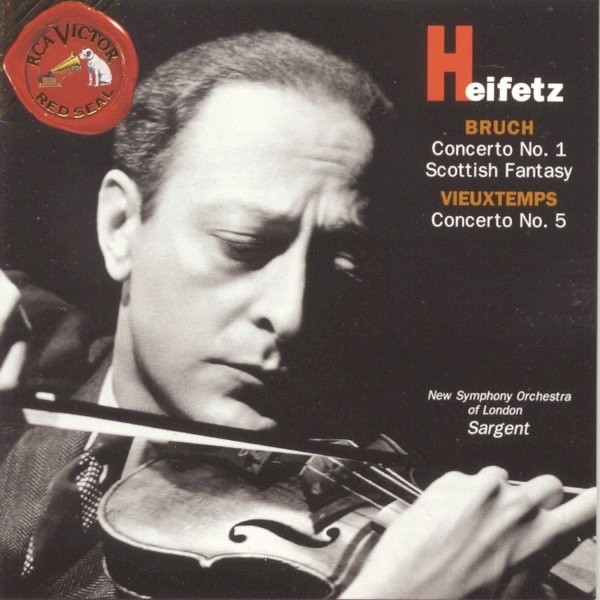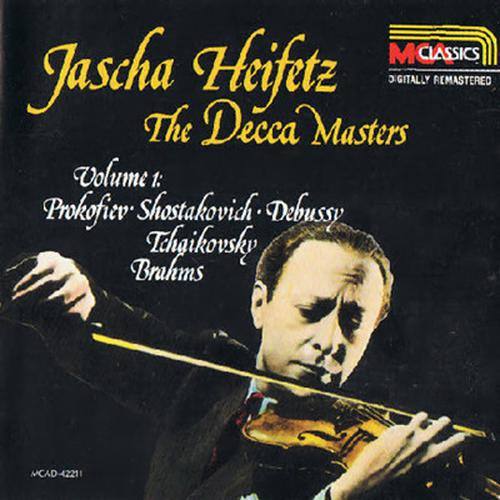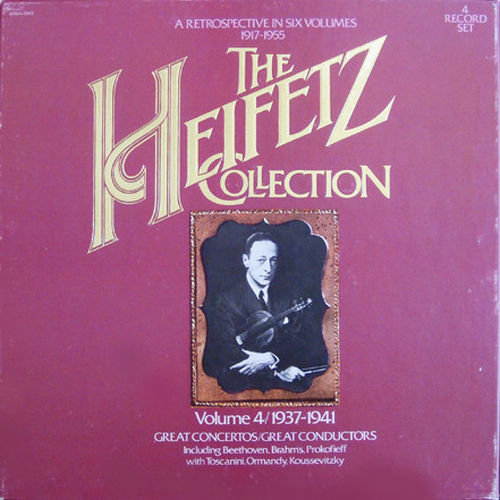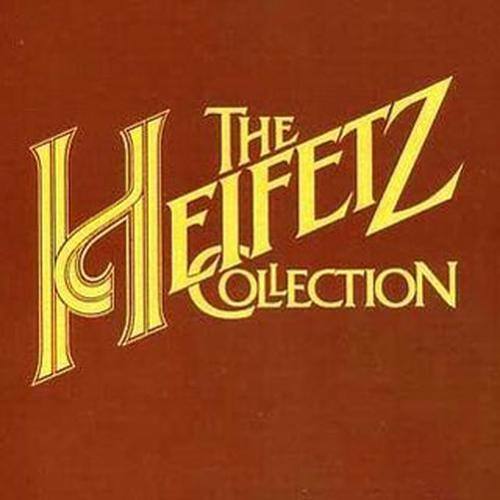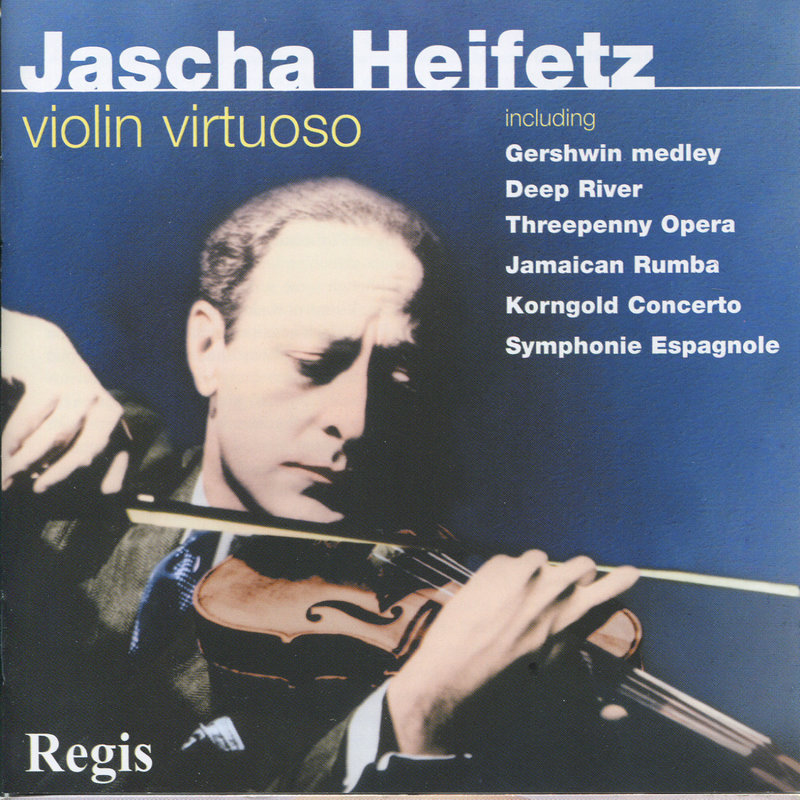
The Heifetz Collection, Volume 18 - EMI Masters
Jascha Heifetz
1997-06-17
专辑简介
Jascha Heifetz and His London Critics
"I heard one lady say after the concert, 'He is quite as good as his records'— I the kind of remark that would have been unthinkable a few years ago." I Thus Alfred Kalisch in the Musical Times on the occasion of Jascha Heifetz's London debut in the spring of 1920. Kalisch was reporting on what he also described as "the greatest sensation of the musical season," adding that "it deserves mention also for a reason which may become historical: this is the first time an artist has been well-known to a large public before appearing in person in this country." An accurate augury indeed, one that was dramatically reflected in Heifetz's pre-concert record sales, which had rocketed to an astonishing 70,000 units.
And yet Heifetz's name was already familiar to readers of the British national press. As early as June 1912, the Daily Telegraph had reported on his Berlin debut, observing that "with a complete facility in overcoming technical difficulties he associated a remarkable maturity of feeling and a tranquility and assurance of manner very rare among even older instrumentalists." And a May 1920 Daily News interview revealed the distinguished visitor's interest in the Houses of Parliament: "Your Colonel Wedgwood very kindly showed me round," Heifetz said with justifiable pride, then went on to complain about luggage handling at Liverpool and express keen admiration for the quality of English chorus girls!
Yet Kalisch was already rather skeptical about Heifetz's interpretative abilities: "It is only possible to say, negatively, " he wrote (in that same issue of the Musical Times), "that he did nothing meretricious or that could offend fastidious taste. " But when it came to the second concert (which included the Chaconne from Bach's Second Partita for unaccompanied violin), and after conceding that Heifetz's display of technique "was even more astonishing than it had been at the first concert," Kalisch reiterated his first impression, adding that "the temperament is there and will develop when the artist no longer finds it necessary to devote himself exclusively to technique."
Heifetz release—the Tchaikovsky Concerto under Fritz Reiner—which Percy Cater in the Daily Mail thought "to assume a practically visual reality," adding that "even... the sense of proud, taut-spirited art that Heifetz gives me when I see him was there. "
Four years later, in November 1962, RCA released the initial album of Heifetz-Piatigorsky Concerts, a 3-LP set that inspired Denis Stevens in that month's Gramophone to confess that "after years of making do with ensembles with a weak member here and there, waiting for exposed passages in octaves that never sound quite in tune, it is sheer relief to listen to and enjoy performances that are technically as perfect as possible, musically as sincere as one could wish for. " Was it Heifetz's greater maturity that prompted this gradual change of critical heart or simply a new-found realization that technical perfection need not necessarily preclude profound musicianship? Whatever the reason, no writer has put it more succinctly than Bernard Levin did in April 1978 for the Times. Having himself revised some previous opinions about Heifetz, Levin wrote (regarding the LP edition of The Heifetz Collection): "A finger points at an individual, once a century or so, and the chosen one is lifted so far from the ordinary run of mankind that we can say: this is the best."
—Robert Cowan ©1993
JASCHA HEIFETZ
专辑曲目
1
Piotr Ilich Tchaikovsky(1840-93 Concerto, Op.35, in D/D-dur/ré mineur)
Jascha Heifetz
2
Jean Sibelius(1865-1957 Concerto, Op. 47, in D Minor/d-moll/ré mineur)
Jascha Heifetz
3
Felix Mendelssohn(1809-47 Concerto, Op.64, in E Minor/e-moll/mi mineur)
Jascha Heifetz
4
Wolfgang Amadeus Mozart(1756-91 Concerto No. 4, K.218, in D/D-dur/ré majeur)
Jascha Heifetz
5
Johann Sebastian Bach (1685-1750 Partita No.2, BWV 1004, in D Minor/d-moll/ré mineur)
Jascha Heifetz
6
César Franck (1822-90 Sonata in A/A-dur/la majeur)
Jascha Heifetz
7
César Franck (1822-90 Sonata in A/A-dur/la majeur)
Jascha Heifetz
8
Wolfgang Amadeus Mozart (1756-91 Concerto No. 4, K.218, in D/D-dur/ré majeur)
Jascha Heifetz
9
Johann Sebastian Bach (1685-1750 Partita No.2, BWV 1004, in D Minor/d-moll/ré mineur)
Jascha Heifetz
10
Johann Sebastian Bach (1685-1750 Partita No.2, BWV 1004, in D Minor/d-moll/ré mineur)
Jascha Heifetz
11
Johann Sebastian Bach (1685-1750 Partita No.2, BWV 1004, in D Minor/d-moll/ré mineur)
Jascha Heifetz
12
Jean Sibelius (1865-1957 Concerto, Op. 47, in D Minor/d-moll/ré mineur)
Jascha Heifetz
13






